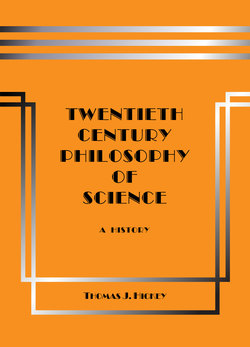Читать книгу Twentieth-Century Philosophy of Science: A History (Third Edition) - Thomas J. Hickey - Страница 50
На сайте Литреса книга снята с продажи.
3.19 Rejection of Meaning Invariance
ОглавлениеThe semantics of every descriptive term is determined by the term’s linguistic context consisting of a set of universally quantified statements believed to be true, such that a change in any of those contextual beliefs changes some component parts of the constituent terms’ meanings.
In science the linguistic context consisting of universally quantified statements believed to be true may include both theories awaiting empirical testing and law statements including test-design statements, which jointly contribute to the semantics of their shared constituent descriptive terms.
When the observation-theory dichotomy is rejected, the language that reports observations becomes subject to semantical change or what Feyerabend called “meaning variance”. For the convinced believer in a theory the statements of the theory contribute meaning parts to the semantics of descriptive language used to report observations, such that a revision of the theory changes part of the semantics of the relevant observational description.
